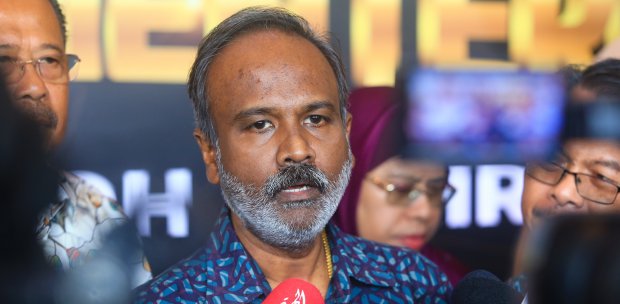Malaysia has for several years been accused (which it has consistently denied) of using forced migrant labour in its plantations and other industries.
The question is, will things change now that the government has deposited, on March 21 this year, the instrument of ratification of the Protocol of 2014 to the Forced Labour Convention, 1930 with the director-general of the International Labour Organisation (ILO).
In doing so, it became the 58th country (and second Asean member) to ratify the Protocol. With this, Malaysia has renewed its commitment to fight against forced labour in all its forms, including human trafficking.
In depositing the instrument of ratification, the human resources minister stated that: "This ratification is a testament to our utmost commitment in addressing and eradicating forced labour, which is an infringement of human rights that should not be tolerated."
Receiving the instrument of ratification, ILO director-general Guy Ryder stated: "The ratification by the government of Malaysia represents an important step that strengthens the measures that have already been taken at the national level to combat forced labour, including human trafficking.
"I am therefore very pleased to receive this instrument, which also reaffirms the continued commitment of Malaysia to respect fundamental principles and rights at work."
The Protocol, adopted at the 2014 International Labour Conference, reinforces the international legal framework for combating forced labour by committing States Parties to:
TAKE measures to combat forced labour (including trafficking in persons, debt bondage or forced domestic labour);
SANCTION the perpetrators (offenders); and,
PROTECT victims by ensuring access to justice and legal remedies.
It is estimated that about 25 million people around the world are forced to work under threat or coercion, with many being migrant workers.
Initiatives to improve the welfare of our migrant labour force included updating anti-trafficking legislation in 2015 and 2021 to incorporate a more victim-centred approach, permission to move freely, provision of allowance and payment of compensation, as well as definition of trafficking in persons.
Malaysia has also drawn up a National Action Plan on Trafficking in Persons for the period 2021 to 2025.
In voicing support, the Malaysian Bar Council recently said the "strong position taken by the government is a much-needed declaration on the pressing need to eliminate forced labour", especially in light of the eight Withhold Release Orders (WROs) issued by the United States Customs and Border Protection (USCBP) from 2019 to 2022.
Under these orders, the USCBP prohibits the importation of "merchandise mined, manufactured, or produced, wholly or in part in Malaysia", by inter alia, forced labour.
Six of these WROs are still active today and are against companies in the rubber and oil palm industries.
The Bar Council also stated, bearing in mind that Malaysia now has a seat in the United Nations Human Rights Council, that we should work closely with all stakeholders to amend our national laws so that they are bought in line with the Convention and the Protocol.
A news portal stated on Jan 30 this year that Malaysia's Human Resources Ministry would call in all companies facing US import bans over suspected forced labour practices "to discuss immediate action to address the allegations".
The portal added that factories (including major suppliers of palm oil and medical gloves) have been under increased scrutiny over allegations of abuse of migrant workers.
The USCBP had named, among others, a disposable glove maker and a palm oil producer.
Article 6 (1) of the Federal Constitution states that "no person shall be held in slavery" and Article 6 (2) states that "all forms of forced labour are prohibited, but Parliament may by law provide for compulsory service for national purposes".
Whilst the prohibition of forced labour is clear, the tragedy is that migrant workers are usually exploited by their recruiting agents in their own country of origin (for example, Bangladesh, Pakistan, Nepal and Indonesia) or by their employers in this country.
The exploitation begins with the seizure of these migrant workers' passports, either by their employers or recruiting agents.
This practice is aimed at controlling the workers' movement, and preventing them from changing jobs or making complaints to the authorities about their poor working conditions or slavery.
In view of all these, we hope that things will change since we are now a member of the Protocol.
The writer, a former federal counsel at the Attorney-General's Chambers and visiting professor at Universiti Teknologi Malaysia, is now a full-time consultant, trainer and author
The views expressed in this article are the author's own and do not necessarily reflect those of the New Straits Times






